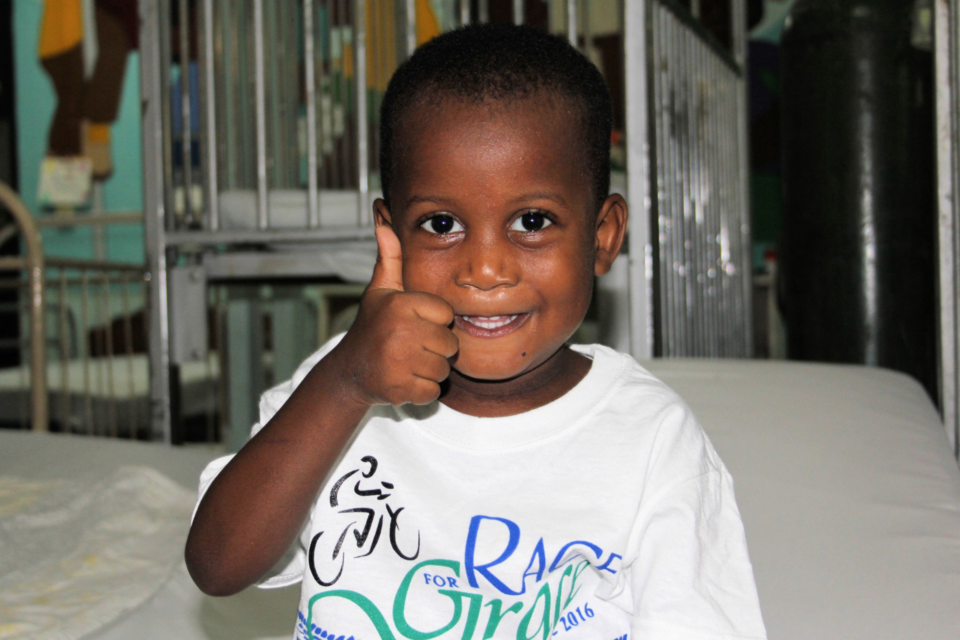PART D — INTERNATIONAL: Michigan United Methodists have had a relationship with God’s people in Haiti since 1996. The 2024 Annual Conference put a plan in place to help strengthen that special bond.
KAY DEMOSS
Michigan Conference Communications
Those who watch the news see Haiti as a violent place in need of police presence. The Michigan Conference of The United Methodist Church sees Haiti as a place of promise in need of God’s love.
Twenty-eight years ago, the Michigan Area – Detroit and West Michigan conferences – entered a covenant relationship with the Methodist Church of Haiti. The Eglise Methodiste d’haiti (EMH) is a district of The Methodist Church in the Caribbean and the Americas, which grew out of The British Methodist Church.
Since the first covenant in 1996, things have changed both in Michigan and in Haiti. Two conferences are now one in Michigan. An earthquake, COVID-19, political instability, and leadership changes have rocked Haiti. The Michigan Conference’s Haiti Task Force acknowledges “setbacks and issues of accountability in relations with EMH.” These factors have made it increasingly difficult for Michigan residents to visit the ministries they helped build in Haiti.
Given these realities, the task force spent recent months exploring ways to move forward in vital partnership. At the 2024 Michigan Annual Conference in May, the task force brought a new model of relationship, which members adopted. Churches and individuals across the state can now continue their support of their Haitian brothers and sisters in Christ with renewed enthusiasm and confidence.
During a fireside chat at conference, Rev. Alex Plum, chair of the Michigan Conference Board of Global Ministries, noted, “The situation in Haiti remains brittle. But when we ask for your financial gifts, we have systems in place that we can trust.”
Engaging with Haitians
The Haiti Task Force emphasizes the need to “respond in faith and love, reaching beyond our geographic boundaries in mutual servanthood by joining together our gifts and graces in a shared vision of ministry with Haitian ministry partners.”
Mutual servanthood focuses on the empowerment of persons and communities, putting Christ at the center. The Michigan Conference commitment cares for “the spiritual, mental, emotional, and physical well-being of all those involved.”
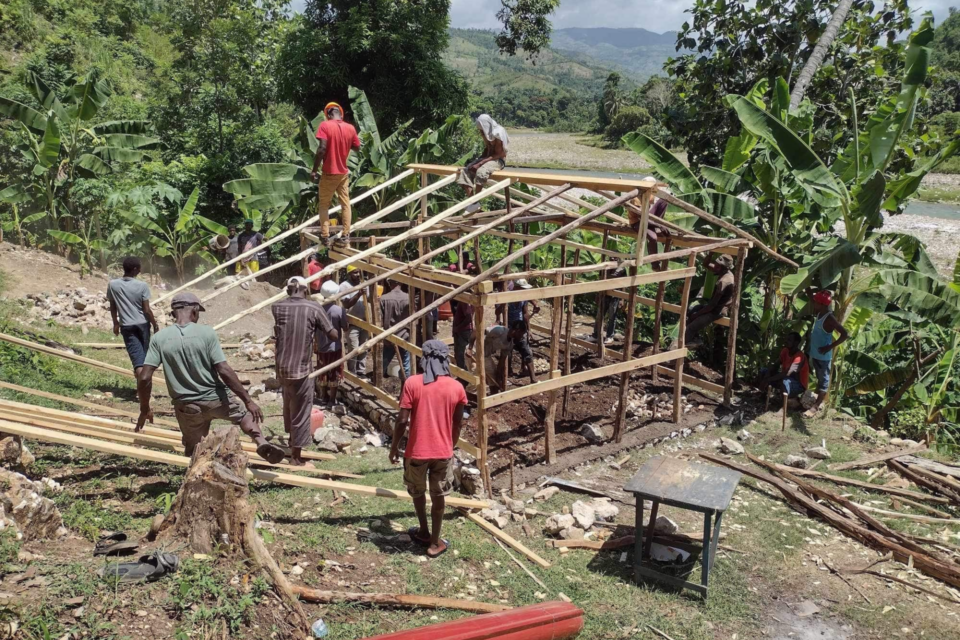
The EngageMI program of the Michigan Conference Board of Global Ministries provides the foundation for the renewed commitment to the people of Haiti. As with other ministries in the state and around the globe, EngageMI encourages a wide range of learning, giving, and action. All are urged to pray for Haitian partners and study the country’s history and culture. Contributions of time, service, dollars, and witness are welcomed. Advocating for transformation in Haiti is a critical way to support partners.
The Advance stands behind EngageMI partnerships outside the United States, including Haiti. The Advance is the designated giving arm of The United Methodist Church. Since 1948, It has ensured donors that 100% of each gift is used for its intended mission or ministry. It has provided thousands of secure lifelines between persons wanting to share resources to alleviate suffering and promote justice, freedom, and peace.
What does 100% mean, and why is that promise important? First, no administrative costs are taken from gifts to The Advance. Second, the General Board of Global Ministries’ (GBGM) reporting and regular examination of Advance projects help ensure the appropriate and intended use of funds that reach each ministry or mission. The 100% promise expects best practices to be followed. Such project accountability yields donor trust.
Three Ministry Partners
Going forward, the Haiti Task Force resolves to expand the number of potential partners in Haiti. At present, they invite engagement with the four GBGM Haiti Advance Specials. These are found in EngageMI, Part D: international partners.
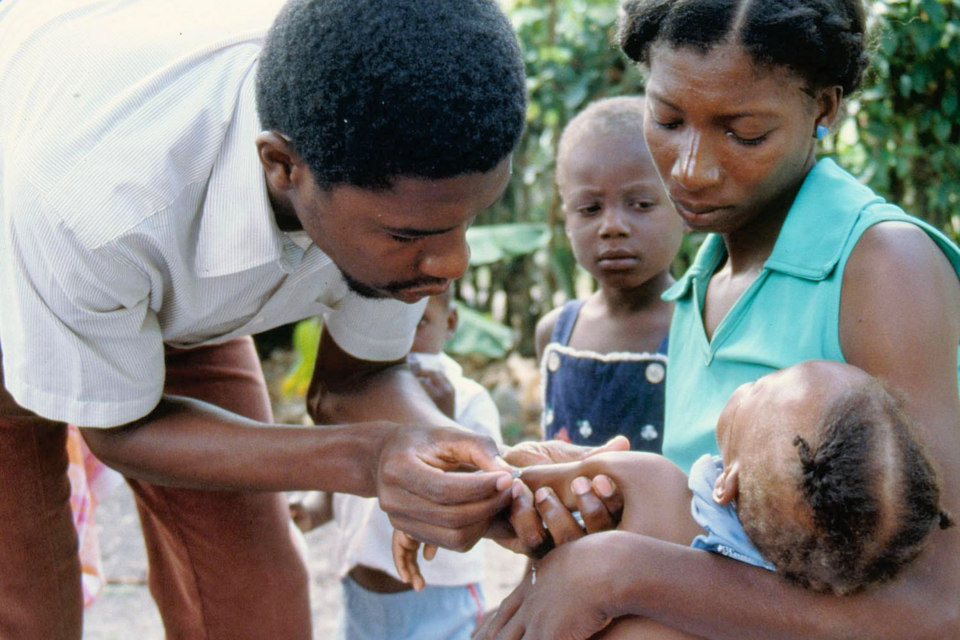
Grace Children’s Hospital, Advance #418520, and Rural Health Clinics, Advance #418847
Since 1967, Grace Children’s Hospital has been dedicated to preventing illness, promoting well-being, and restoring health to Haiti’s children and their families. In addition to the hospital in Port-au-Prince, Grace manages a network of 150 rural health clinics in the southwest and northwest. International Child Care (ICC) is the nonprofit that administers this work and is based in Ann Arbor, Michigan. Len Middleton, ICC treasurer, explains that their corporate identity as ICC will not change. However, “We are in the process of moving toward speaking of our ministry with just one name, Grace.” Grace Children’s Hospital has been an Advance Special since 1967. Middleton says, “The Board of Global Ministries acknowledges us as the oldest project in The Advance.” In 2023, Grace made a difference in the lives of 170,000 children. Middleton reports that gifts to The Advance will pay the salaries of staff in Haiti and replenish much-needed medical supplies. Grace began as a place treating children with tuberculosis. It has grown through the years, with hopes to expand its eye clinic and maternal care. Throughout years of turmoil, Grace’s ministry has been uninterrupted. Currently, ICC is seeking to fund a digital X-ray machine. Middleton reflects, “We treat everyone who comes to the gate. We have never had a rock thrown through the window because it has always been all about the kids.” Learn more at www.gracecare.life.
Haitian Assets for Peace International (HAPI), Advance #3020490
HAPI’s primary mission is to help “Haitians live healthier, longer, more prosperous lives through innovation, collaboration, learning, and leadership in health care and education.” That effort began in 2007 as a craft cooperative in Mizak, a mountain village about 100 miles southwest of Port-au-Prince. The ministry has evolved, and today, HAPI provides medical care, health resources, and training. Pre-natal care and the treatment of hypertension remain at the heart of the work of HAPI. Mario Damis, who is in the United States doing graduate work at Ferris State University, talked about how HAPI changed his life during a fireside chat at the 2024 Michigan Annual Conference. “I was born in Mizak, and things were hopeless there,” he began. “I rode a mule for three hours to get health care. Then HAPI started in Mizak, and there was a big change.” Mario told the story of going to school and returning to Mizak to create HAPITech, a training program for the community’s young people. “Now, the Felisane Health Center is the heart of Mizak. No one needs to travel three hours for care anymore,” he concluded. “It’s always been about empowerment,” Valerie Mossman-Celestin told the Annual Conference as the U.S. executive director of HAPI. She added that a new health center and enhanced cardiac care initiatives are on the horizon. “Haiti cannot build an economy or future,” she stressed, “without increasing life expectancy. . . . At HAPI, we walk alongside people to help them fulfill their full potential as we draw closer to God’s will for us.” Learn more on HAPI’s Facebook page.
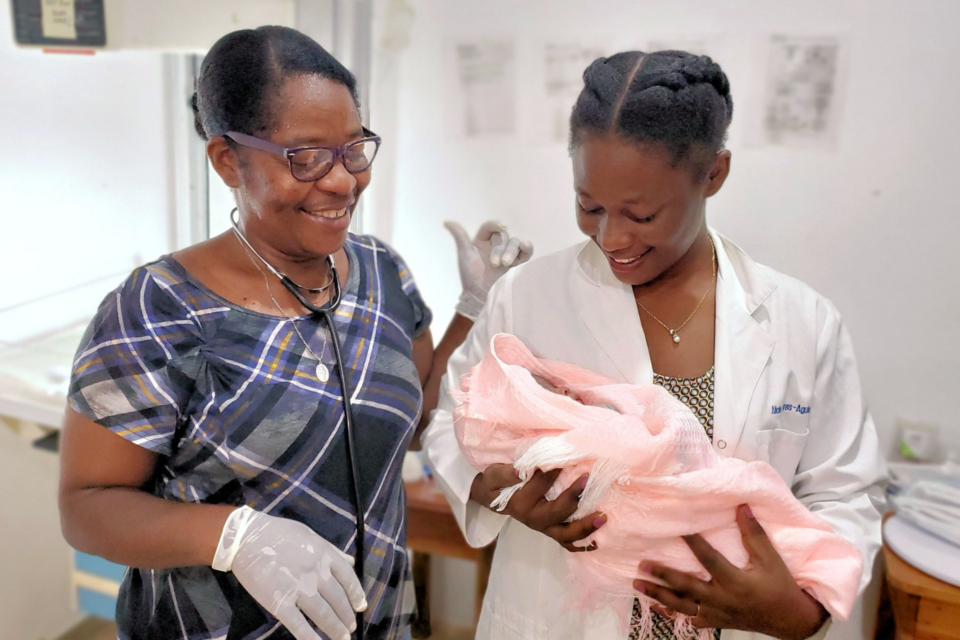
Jeremie Rising (Next Generation), Advance #3020507
Jeremie, a town and circuit of 30 churches, is six to seven hours southwest of Port-au-Prince. Birmingham: First UMC established a relationship with Jeremie after the earthquake in 2010. Ten years later, John and Nancy Smith, members of Birmingham: First, expanded that project into a nonprofit now known as Jeremie Rising. The Smiths report that Jeremie remains insulated from most gang activity “but pays a stiff price as the country’s economy suffers, and prices for food and other essentials have become out of reach.” Jeremie Rising currently manages two orphanages and one elder care facility, conducts mobile medical events in villages, builds shelters for homeless families, and organizes tuition support for more than 140 K-12 children. Gifts to Jeremie Rising are channeled through Next Generation, an Advance Special related to the South Carolina Conference of The United Methodist Church. Jeremie Rising is an all-volunteer organization entirely funded by donations. “It is a pleasure for me as a civil engineer to express my joy for Jeremie Rising’s support and dedication to helping people who have no hope by building schools and churches,” says Patrick Duval. “These people had no place to go, either to worship God or to send their children for education, and are so happy that Jeremie Rising exists,” he continues. The work in Jeremie began with work teams traveling from Michigan to Haiti. That direct presence ceased in 2019. “COVID-19 and gang-related security concerns have since made traveling to Haiti impossible,” the Smiths explain. “However, the work in Haiti continues as Jeremie Rising has developed a loyal and trusted ground team,” who accomplish amazing things with the ever-faithful Haitian people. Learn more on Jeremie Rising’s Facebook page.
Online contributions to support the work of these ministry partners may be made using the Give buttons on the EngageMI web page.
Slivers of Hope
At the 2024 Michigan Annual Conference, the five leaders mentioned above represented Michigan’s Haiti partners at a ministry fair and fireside chat on Thursday evening, May 30. Host Rev. Tiffany Newsom, co-chair of the Haiti Task Force, asked them to share slivers of hope.
“It’s the people who draw us back,” said Valerie Mossman-Celestin. She spoke of Yoland Gabriel Zephir, an artisan in 2007 who now serves as HAPI’s Director of Community Health. Yoland’s daughter, Dr. Riouse Zephir, returned to Mizak after training to become a medical resident at the Start Right clinic. “They finish university and then knock on our door,” Valerie added.
John Smith offered the example of a church build in David. “The church in David was a nothingburger held together with duct tape. They asked us to help them have a better building.” Birmingham’s pastor at the time, Rev. Elbert Dulworth, became enthusiastic about “building a church in the city of David.” Funds were raised, and prayers were answered a year later. “We have an enormous safety net here in Michigan,” Smith noted. “They have none there, but they can count on us.”
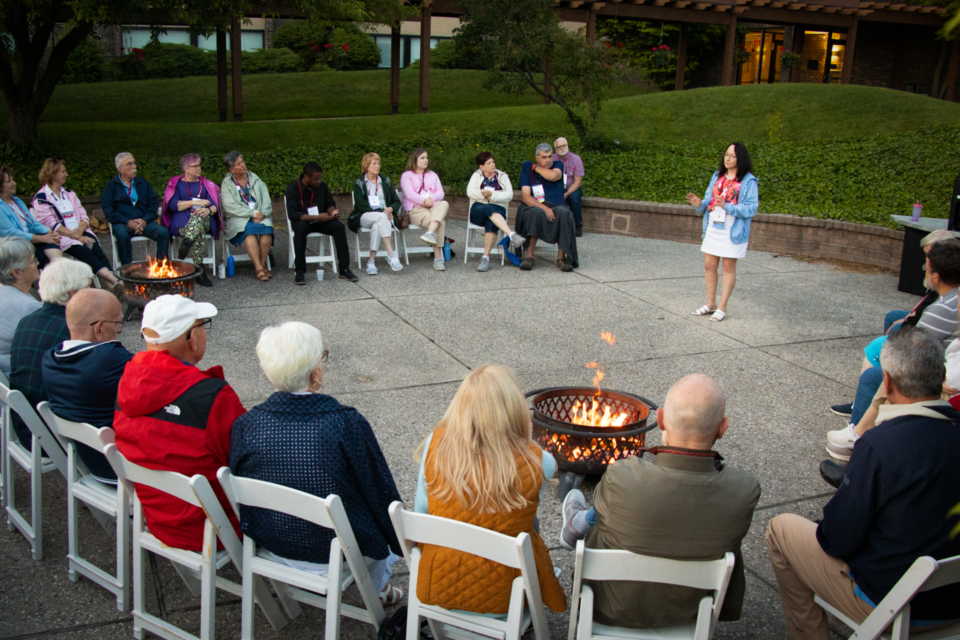
Grace’s Len Middleton took the opportunity to thank the United Methodist Committee on Relief (UMCOR) for a $131,000 grant for medical supplies. “Every penny of that grant has been accounted for,” he added. “We have spent the last ten years making sure our systems in Michigan and Haiti are transparent.” He called The Advance the “cornerstone of our ministry.”
Tiffany Newsom closed the fireside chat with a Haitian proverb: “The heart cannot feel what the eyes have not seen.” Calling Haitians “amazing people who want to thrive,” Newsom invited congregations across the Michigan Conference to support the people of Haiti through our ministry partners: Grace, HAPI, and Jeremie Rising.
Editor’s notes: Additional information can be found in Rev. Alice Fleming Townley’s previous article, “We are open for such a time.” A new Haiti Ministry Partners page is being developed on the Michigan Conference website. It will be introduced in MIconnect later this summer.

